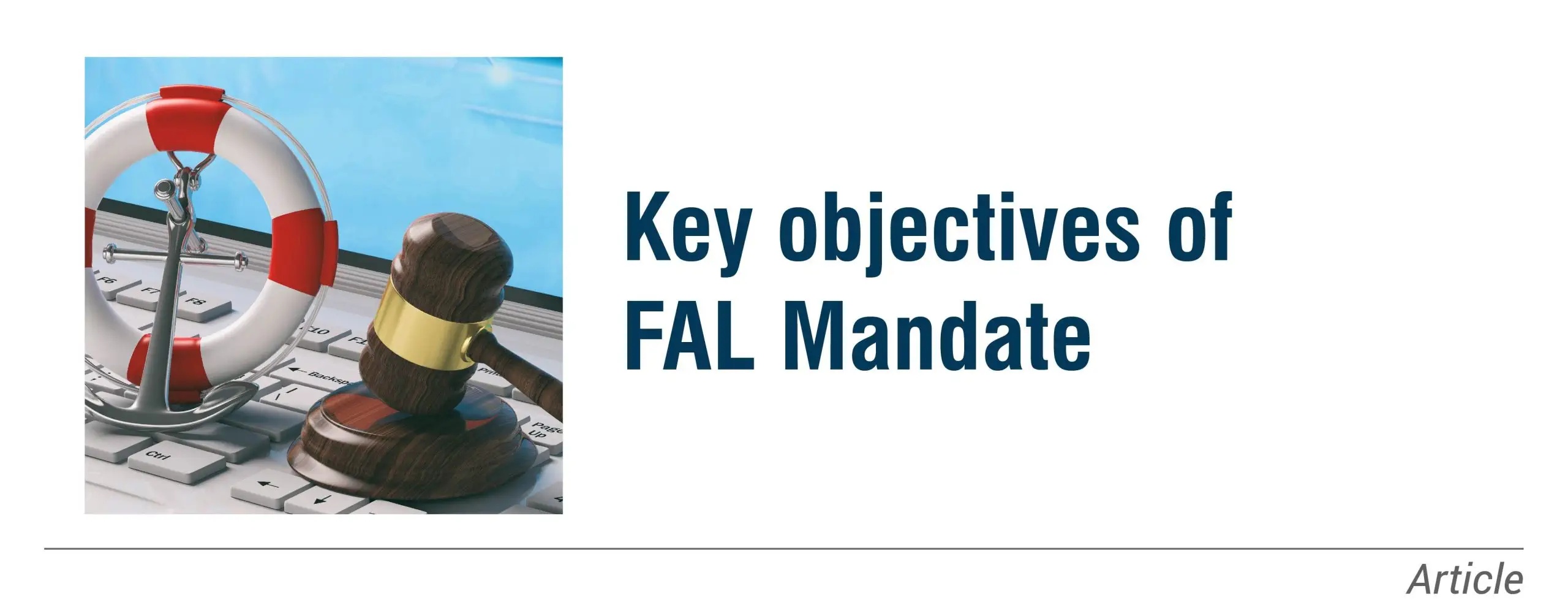
23 Sep Key objectives of IMO’s Amendment to FAL Mandate
In May 2022, the International Maritime Organization (IMO) announced fresh amendments to the existing FAL Convention. Port authorities, governments, and other regulatory bodies associated with the maritime trade are deemed to compulsorily follow these rules before 01 January 2024. The mandate suggests and emphasizes aspects such as mandatory digitization, implementation of a single window system in every port, and inculcation of the lessons learnt from the COVID-19 pandemic. Here is a detailed emphasis on the key objectives that IMO is keen on achieving through this mandate.
Emphasis on sustainability
Maritime trade accounts for 4 percent of carbon emissions in the world. In the coming few years, the percentage of emissions is said to touch at least 20 percent. Therefore, IMO believes reducing carbon emissions and ensuring a sustainable business ecosystem developed around the Maritime trade is essential. Therefore, the amendments carried out by the FAL convention suggest the strict implementation of a maritime single window. Public authorities are deemed to establish, maintain, and use single window systems for the electronic exchange of information required prior to ships’ arrival, stay, and departure in ports. This will not only improve the efficiency of the port operations but will also make way for paperless trade and lower fuel consumption by the ships.
Standardizing data submission
According to a recent study, nearly 85 percent of vessel operators across the globe are facing challenges on a lack of standardized data submission to ports, maritime authorities, customs, and other government agencies. With differing vessel data and clearance processes at each port, manual & duplicate data entry still impedes information quality and operational efficiency for shipping lines. A single window system, as mandated by IMO, will allow shipping line operators/vessel agents to submit all vessel-related data prior to arrival-stay-departure to the port and maritime/regulatory authorities in a harmonized way through standard information templates. Moreover, it also ensures that the information submitted is only once and repurposed to the greatest extent possible.
Thwarting illicit trade and maritime corruption
Customs authorities worldwide often find it challenging to deal with the parallel mandate of Illicit trading as it causes loss of revenue and cargo. In turn, this parallel mandate also leads to operational inefficiencies with a legitimate supply chain. IMO’s FAL Convention addresses this challenge with digitization or a mandatory single window system. Technology sets governance of frameworks to counter illicit trade and risk deterrence. A Single Window platform proactively identifies emerging threats with pre-arrival shipment information. It connects all inter-agencies like Customs, Immigration, Port Health, and other border security forces to share information on the arrival-stay-departure of vessels and their cargo so that information discrepancy is null. Moreover, it prevents users from tampering with any data/document submitted, thereby preventing malpractices in the trade.
Improvising productivity of berth operations
An ideal maritime supply chain makes seamless collaboration between ports, shipping lines, and regulatory authorities to achieve sustainability and optimization of operations. But in reality, this is a gap which all ports are facing. Vessels keep waiting at the anchorage area on an average of 12-48 hours in order to berth while the berths remain idle because of the non-arrival of scheduled vessels. A single window platform allows ports to improve berth productivity by enabling complete visibility of vessel arrival-stay-departure on a real-time basis with the help of the ETA and ATA of the vessel. Based on berth availability, vessels can optimize their speed on all sailing legs and reduce fuel consumption and emissions. Along with improved berth productivity, the port can promote other benefits, especially in terms of idle time minimization, which corresponds not only to savings in fuel consumption and bunker cost but also to environmental benefits in terms of reduced emissions.
Handling another unprecedented situation
The COVID-19 pandemic outbreak is a significant challenge that the entire world never faced in a century. However, it seems the world has learnt very little from the previous disasters. Now, the IMO’s amendment to FAL Convention commands contracting governments and public authorities in every nation to allow ships and ports to remain fully functional during such situations. Also, it mandates the entire maritime ecosystem to keep an emergency global supply chain on to ensure all essentials reach the deprived countries on time. Apart from that, public authorities are also asked to designate port workers and shipping crew as frontline workers during such emergencies.
Will the stakeholders adhere?
The FAL mandate announced before the pandemic saw little participation among the stakeholders. It is believed that only 30 percent of the ports worldwide have adhered to the mandate so far. While IMO’s objectives to achieve 360-degree digitization are well-lauded, few stakeholders are considering it seriously. The reason for non-adherence is often driven by heavy financial investment. Hence, the regulator needs to facilitate a cost-effective solution which becomes acceptable to all stakeholders.
